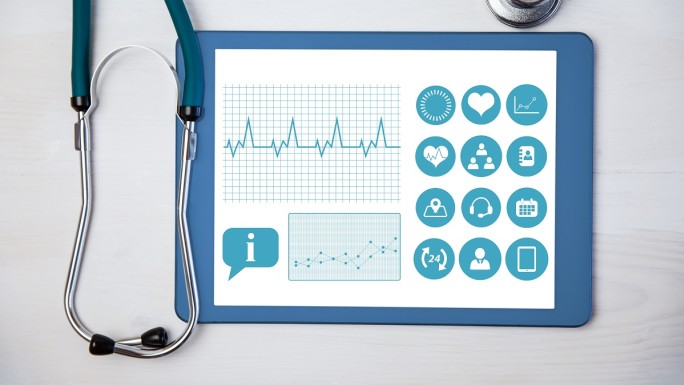What to consider in Developing a Medication History System
The importance of accurate and up-to-date patient information should not be underestimated. One crucial aspect of this patient data is the comprehensive medication history. Managing and reconciling a patient's medication history is essential not only for providing high-quality care but also for safeguarding patient safety.
In this article, we delve into the pivotal role of the medication history system in healthcare. Exploring how these digital solutions are transforming the way healthcare providers and organizations track, manage, and leverage medication data to ensure the well-being of their patients.
What is a medication history system?

A medication history system, also known as a medication reconciliation system, is a digital healthcare information technology solution designed to capture, store, and manage comprehensive records of a patient's medication history. This system helps healthcare providers and clinical staff accurately track and document all medications a patient has taken over time, including prescription drugs, over-the-counter medications, herbal supplements, and vitamins.
Required features of a medication history system
A medication history system is a comprehensive and organized electronic platform designed to capture, manage, and maintain a detailed record of an individual's medication-related information. Such a system is crucial in healthcare settings and must ensure several functions:
Bring comprehensive medication history records
The system collects and stores information about all medications an individual is taking, including prescription drugs, over-the-counter medicines, dietary supplements, herbal remedies, and more. It helps maintain comprehensive records for each medication, and healthcare providers will have an overall look at patients' medication history.
Complete information about medicines
Medication history systems should document all information about each medication, specifying the medical condition or purpose for which it was prescribed or recommended. The system must also include information about known allergies, intolerances, or adverse reactions to specific medications to prevent potentially harmful interactions.
Support Medication Reconciliation
Medication history and medication reconciliation are interlaced processes that rely on the accurate documentation of a patient's medication regimen. While medication history provides a complete record, medication reconciliation involves the ongoing process of verifying and updating this information during care transitions. Medication history facilitates medication reconciliation, where healthcare providers review and compare a patient's medication list with records to ensure accuracy and prevent medication errors.
Interoperate with other healthcare systems
Medication history systems should be designed to interoperate with other healthcare systems, such as electronic health records (EHRs), pharmacy databases, and others, for seamless data exchange.
Ensure Security and Privacy
Robust security measures and privacy controls protect sensitive medication information, complying with data protection regulations like HIPAA. Besides, the system ought to allow for regular updates, ensuring that medication histories stay current and relevant.
User-Friendly Interface
A user-friendly interface allows healthcare providers and patients to easily input, update, and review medication history, ensuring smooth interaction with the system. The system should also generate alerts and reminders for both healthcare providers and patients, notifying them of potential drug interactions, allergies, and medication schedules.
Integrate Telehealth
The medication history system needs to seamlessly integrate with telehealth platforms, enabling healthcare providers to access a patient's medication history during virtual consultations.
Understanding the medications a patient is taking is critical for avoiding adverse events. Access to a patient's medication history allows remote healthcare providers to make informed decisions. It helps avoid potential complications or treatment choices that could be harmful in combination with the patient's current medications.
What factors should be considered when developing a medication history system?

When developing a medication history system, whether for personal use or as part of a healthcare organization's medication management system, there are several important considerations to ensure the system's successful deployment. Below are key factors to keep in mind:
Medication data source and data quality assurance
Determine where medication data will be sourced from. This may include pharmacy records, healthcare providers, patient input, and other healthcare facilities. Integration with pharmacy systems and healthcare provider EHRs can improve data accuracy.
Interoperability with other healthcare systems
Ensure that the system is capable of interoperating with other healthcare systems and standards, such as HL7 FHIR, to exchange medication information seamlessly and securely between different organizations and providers.
Patient Involvement
Empower patients to actively contribute to their medication history. Encourage patients to provide information about over-the-counter medications, supplements, and any changes in their medication regimen.
Accessible platforms
Consider developing a mobile app or an online platform ensuring mobile responsiveness, as patients and healthcare providers often need access to medication history on the go.
Development approach
The development approach for a medication history system should be systematic and prioritize patient safety, data accuracy, and ease of use while also adhering to relevant healthcare regulations and standards. Collaboration with healthcare professionals and stakeholders throughout the development process is crucial to ensure the system’s needs meet their expectations.
Technology resource
To address the digital healthcare challenges, healthcare organizations should ensure whether in-house technology resources are capable of handling the needs, or have to look further for other solutions. For many healthcare organizations, it means finding IT healthcare outsourcing solutions. Carefully considering the resources available to organizations to make the right decisions on how to develop a medication history system.
Conclusion
As healthcare continues to advance, the role of the medication history system remains pivotal in maintaining patient safety, enhancing clinical decision-making, and streamlining care transitions. These digital tools not only bring efficiency to healthcare operations but, more importantly, they serve as guardians of patient well-being.
By harnessing the power of technology to create and maintain accurate medication histories, healthcare providers empower themselves to provide safer and more effective care. With these systems in place, the future of healthcare holds the promise of even better patient outcomes and a higher standard of healthcare quality.









